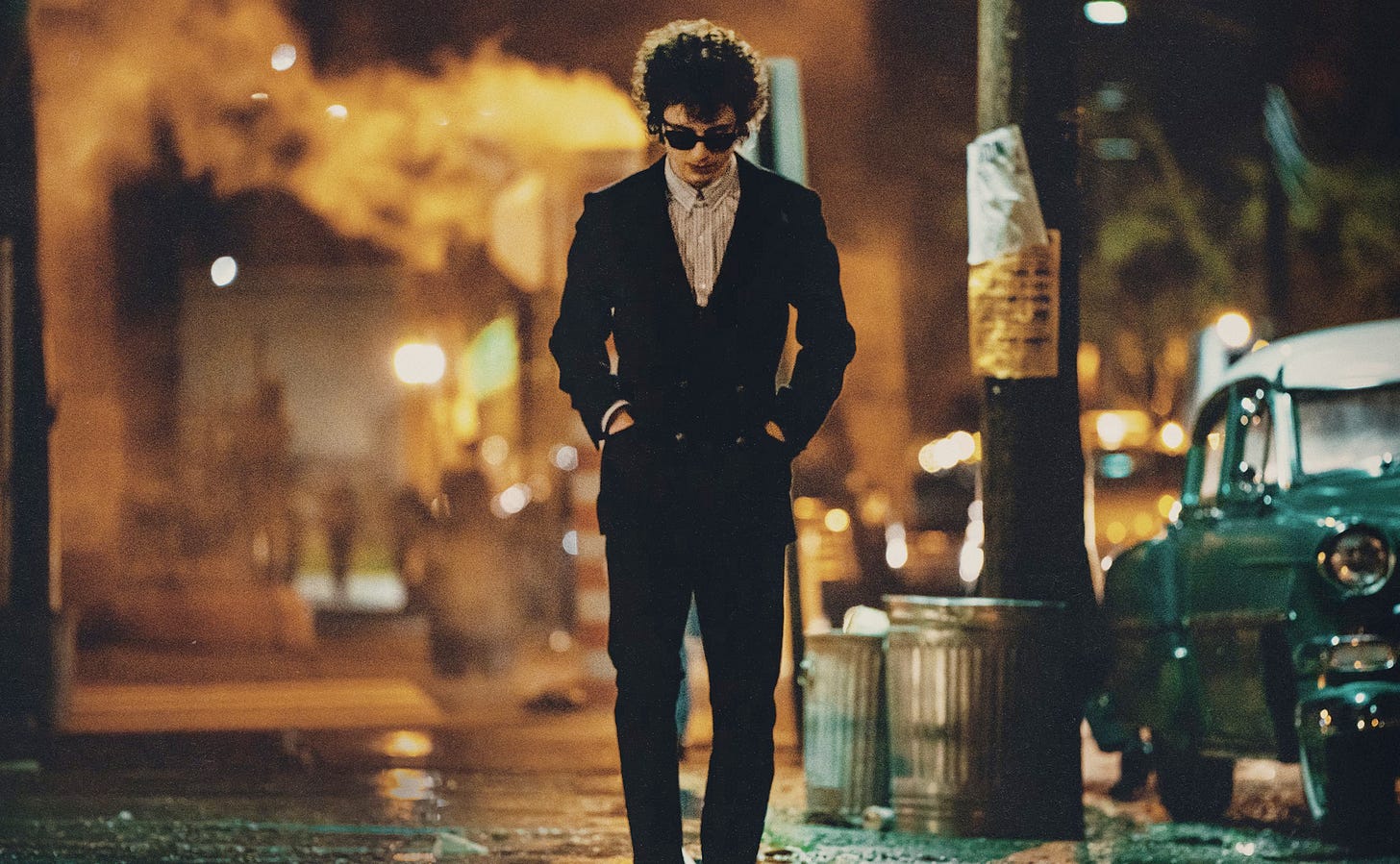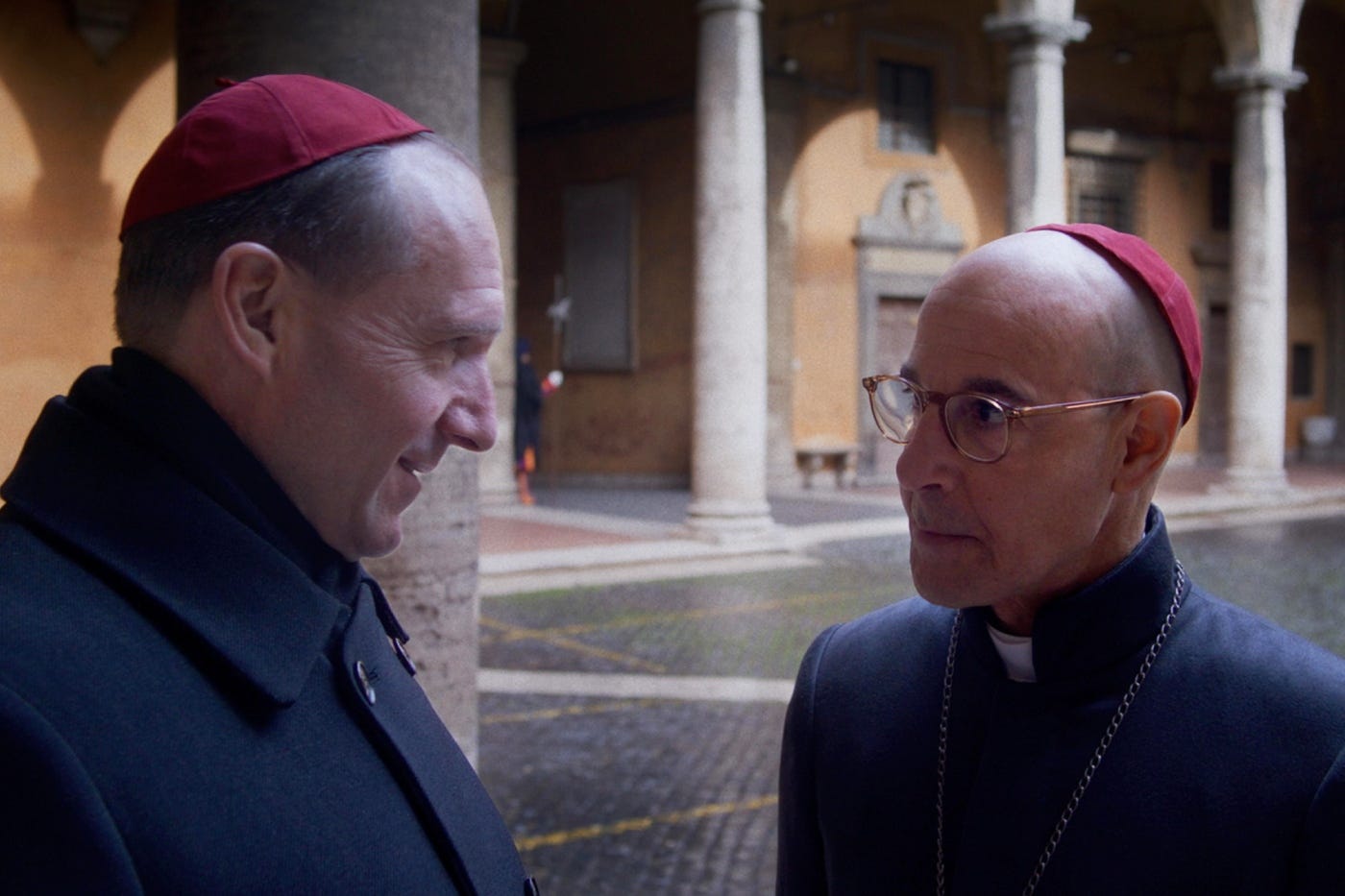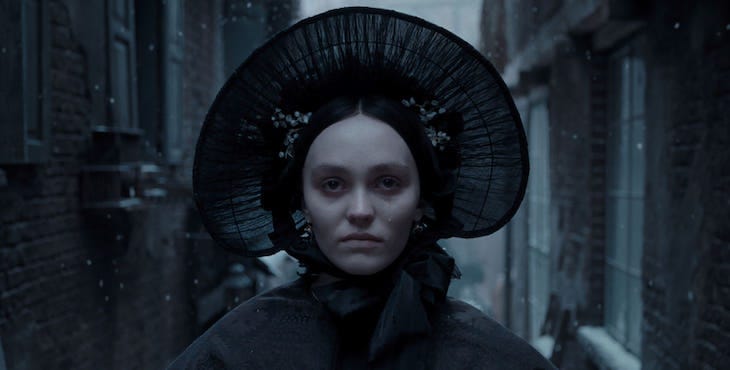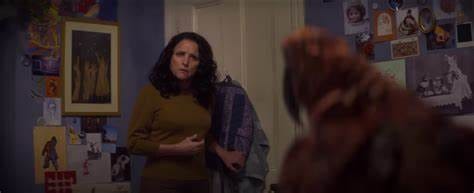What makes a great movie?
My answer, after all these years of watching, studying and often writing about movies: It depends.
Sometimes I crave a genre film — crime, horror, sci-fi — that reliably checks all the boxes, while on other occasions I look for a movie that absolutely confounds expectations. Or maybe a theatrical entertainment so artfully created and seamlessly executed that it makes me feel as if I’ve fallen into another dimension, one of a filmmaker’s own making.
Several of my 2024 favorites, which diverge sharply from the choices of my colleagues in the Florida Film Critics Circle, fit into one of the above categories. And some — “Nosferatu,” “A Complete Unknown” — benefit from the fact that I caught them so recently.
Here are some of my favorites of the year, listed alphabetically:
“ANORA” opens as something akin to a sexy, extended music video, with the Russian-American exotic dancer of the title doing her thing at a Manhattan strip club. There, she encounters an ultra-wealthy Russian oligarch’s young son, who hires Anora (Mikey Madison, in one of the year’s breakout performances) to be his girlfriend-with-benefits for a week. Then the film shifts into sections resembling a romantic comedy, a crime farce and a long, chilly winter night’s journey through such spots as Coney Island and Brighton Beach. Florida-bred filmmaker Sean Baker (“The Florida Project”) deftly handles the tonal shifts, mixing sexually charged sequences with moments of laugh-out-loud slapstick humor, suspenseful passages and, finally, genuine poignance and sadness.
Dylanologists, of course, will happily point out the multiple historical inaccuracies of Bob Dylan biopic “A COMPLETE UNKNOWN.” Still, director James Mangold has helmed a masterful recreation of the American folk and folk-rock scene — from Greenwich Village to the Newport Folk Festival in Rhode Island — that gave birth to one of the world’s most influential and durable songwriters and performers. Timothee Chalamet aptly gets at the brooding inscrutability and, uh, jerky persona of the young Dylan. And Edward Norton is even better as Pete Seeger, the folk champion and kind nurturer of other musicians who helped launch his young friend into the music-icon stratosphere. For those of us who came of age during or not so long after the era so vividly realized onscreen, the musical sequences — particularly the recording of “Like a Rolling Stone” — are downright galvanizing. Word is that Dylan himself signed off on the script and, in typical Bob fashion, encouraged the screenplay’s multiple divergences from the truth.
"LA CHIMERA,” from well-regarded Italian filmmaker Alice Rohrwacher, is centered on a roving band of unemployed, hard partying self-styled archaeologists, led by a young Brit (Josh O'Connor, also lauded this year for his work in “Challengers” and “Lee”). The motley crew robs ancient graves and sells stolen Etruscan treasures on the black market. The romantic drama, set in the '80s, doubles as a sociological study of a particular subculture -- impoverished people living in the hillside shacks and abandoned buildings of a distinctly unpretty region, scrapping to eke out a living and relishing their togetherness at drinking parties and outdoor dances -- that's located worlds apart from the glitz and glamour of picture-postcard Italy.
Papal succession intrigue? Not a topic that screams excitement, exactly. But “CONCLAVE,” centered on bishops from around the world who gather at the Vatican to elect a successor to the late pope, benefits from high-octane performances by the likes of Ralph Fiennes, Stanley Tucci, John Lithgow and Isabella Rossellini. The mysteries of these longstanding rituals are accompanied by secrets carried by the participants. Director Edward Berger’s film thrives on a literate script adapted from the Robert Harris novel of the same name. It gains, too, from the visual flair of cinematographer Stephane Fontaine and production designer Suzie Davies: They create a series of images — the men in their red-and-white outfits, moving separately and together, bathed in the shadows and light of their sequestered location — that often are suitable for framing. Oddly, one of those scenes, an overhead shot of the bishops, holding red umbrellas over their heads as they gathered, even reminded me of a Busby Berkeley choreographed sequence — without the dancing, of course.
“DAUGHTERS” is a fascinating account of a program that allows young girls — from toddlers to teens — to briefly reunite with their incarcerated fathers through a specially arranged prom-style dance at a Washington, D.C. prison. Co-directors Natalie Rae and Angela Patton follow the men as they engage in group-counseling sessions to prepare them for the dance, and the young daughters as prepare to see their dads. Then we see the event, during which these nominally prison-hardened inmates -- who are dressed in suits instead of undignified orange jumpsuits -- become openly emotional as they reconnect with their daughters, and vow to come back home, walk straight and never return to jail. Anyone who doesn't have an emotional response to these scenes ... is probably a rock.
Richard Linklater’s ”HIT MAN” is very loosely based on the true story of college professor and part-time New Orleans police contractor Gary Johnson (a riotous Glenn Powell) who goes undercover as a contract killer. The deeper he dives into the criminal underworld, the more he becomes involved with a sexy woman (Adria Arjona) who may or may not be trustworthy. Powell’s costumes and shticks are hilarious, and the twists and turns of the script, co-written by Linklater and Powell, aren’t predictable. It’s one of the year’s funniest comedies. So, by law, I was required to include it in my Top 10.
At the ripe old age of 94 (!), Clint Eastwood remains a Hollywood moviemaking craftsman of the highest order, as demonstrated by “JUROR #2.” The legal thriller/courtroom drama, while seemingly familiar and conventional, offers much in the way of genuine suspense, along with some legit ethical/philosophical “what would you do?” quandaries for viewers to consider. Nicholas Hoult, also top billed in “Nosferatu,” is Justin Kemp, a young husband and recovering alcoholic, in Savannah, Ga., seated for the jury in the murder trial of a man (Gabriel Basso) who may have killed his girlfriend (Francesca Eastwood, Clint’s daughter) after an argument in a bar. What does Kemp know about the tragedy? The cast, also including Toni Collette, Kiefer Sutherland and Chris Messina, livens a smartly turned screenplay by Jonathan Abrams. If this is Eastwood’s swan song, he has gone out with a bang.
For 2015’s “The Witch,” Robert Eggers created palpably eerie atmospherics and creeping dread. He strikes those haunting notes once again with “NOSFERATU,” sticking closely to the familiar storyline (equal parts F.W. Murnau and Bram Stoker) but making the whole affair darker and scarier; the film oozes fog and Gothic menace from practically every frame. In Germany of the 1830s, ambitious young businessman Thomas Hutter (Nicholas Hoult) leaves his needy, strikingly beautiful young wife Ellen (Lily-Rose Depp) behind to travel to a mountain castle, to ink a lucrative real-estate deal with the mysterious Count Orlok (Bill Skarsgard). The alternately weird and terrifying Count — more humanlike than Max Schreck’s bony creeper from the 1922 film, but larger, fleshier, more imposing and equipped with a subsonic bass voice that sounds like a modulating synthesizer — soon begins wreaking havoc on everyone in sight. This “Nosferatu” is fascinatingly grim, and grimmer, and satisfyingly spooky. A bit of mild comic relief arrives via the wild-eyed histrionics of a fallen academic and would-be vampire hunter played to the hilt by the always reliable Willem Dafoe.
JT Mollner’s “STRANGE DARLING,” marketed as a horror thriller, is best appreciated as a shocking, subversive, non-linear neo-noir with elements of psychological suspense. At its center are Willa Fitzgerald and Kyle Gallner (“Smile” and “Smile 2”), two strangers who engage in intense sadomasochistic role playing before their brand-new relationship takes an even more bizarre turn. The action — somewhere out West and mostly confined to a room in a roadside motel, a farmhouse and backcountry roads that play host to riveting chase sequences — is bolstered by striking visuals courtesy of the actor Giovanni Ribisi, making an impressive feature debut as a cinematographer. He shoots on Kodak 35mm film stock, alternating bright outdoor shots with images such as a bathroom bathed in murky red light and views of a character momentarily glimpsed as a non-human being. Mollner’s off-kilter film hints at Tarantino and the likes of Christopher Nolan’s “Memento”: Provided information about characters out of sequential order, we’re told that we’re seeing the movie’s seven “chapters” play randomly, in shuffle mode. As the old cliche goes, nothing is quite what it seems.
"TUESDAY,” an unusual drama with comic elements, along with touches of fantasy and horror, is distinguished by several terrific performances. Julia Louis-Dreyfus turns in career-best work as a troubled, financially distressed single mother, and Irish newcomer Lola Petticrew shines as her terminally ill teenage daughter. Together, they encounter Death, in the form of a talking bird, voiced by Ainze Kene. Yes, it all works somehow. The A24 film, set in London and co-produced with BBC Film, is alternately disturbing, funny and poignant, and bolstered by Oscar-caliber visual effects. It’s an impressive feature directorial debut by Croatian-born London Film School grad Daina O. Pusić, who also wrote the screenplay.
Copyright 2024 by Philip Booth. All rights reserved.







